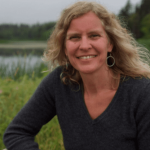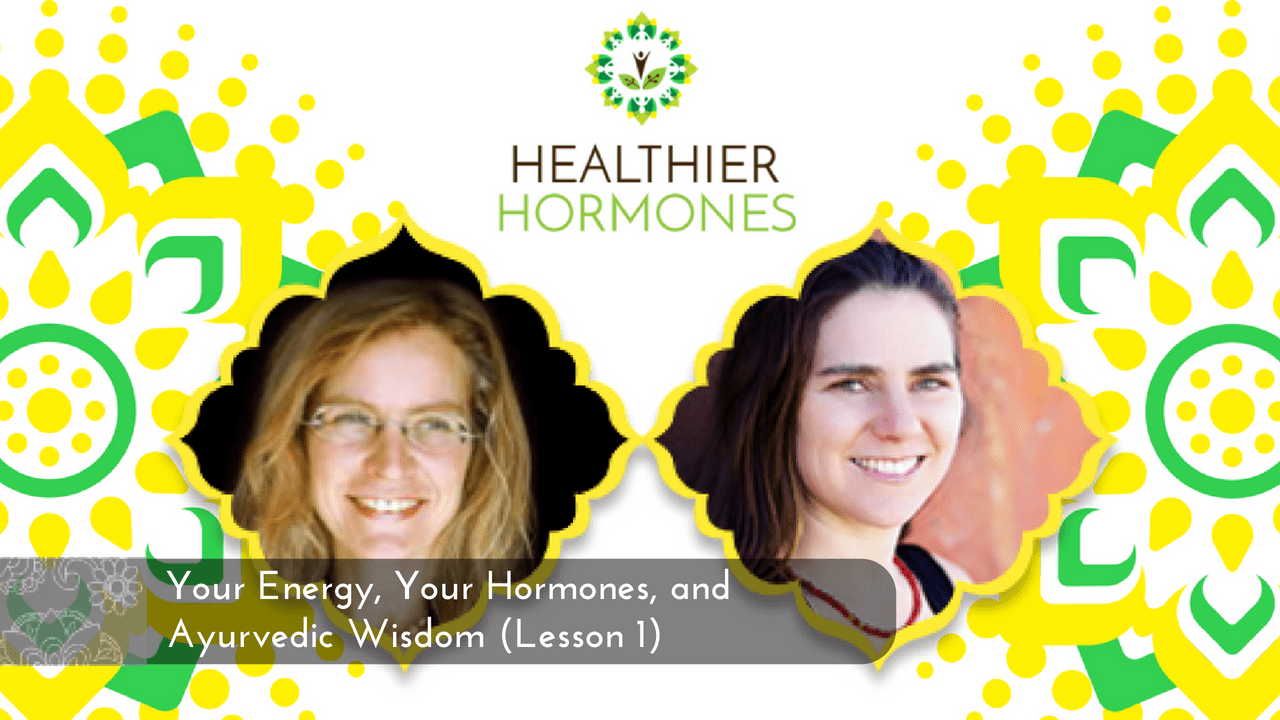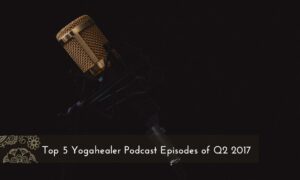In preparation for the upcoming Healthier Hormones course, Cate chats with Dr. Claudia Welch about women’s energy and hormones from an Ayurvedic perspective. Cate and “Dr. C.” have been collaborating on the Healthier Hormones course for the past several years, and Cate has noticed a maturation of the wisdom being shared in the Healthier Hormones Facebook forum. In Part 1 of this 3 part series, Cate and Dr. C. discuss a common misconception that women have less energy as they age. Dr. C. proposes that perhaps it’s not our energy that has diminished, but our willingness to push ourselves beyond our limits. With that, as we age, our energy, rather than diminishing, simply shifts to a more subtle, grounded energy that allows us to tap into greater experiences of source energy that can be directed in such a way that we don’t need to be nearly as “busy” in order to be generative.
Listen the whole conversation and sign up for free 3 video series training here
If we resist that shift in energy, and we continue to push ourselves beyond our limits, our health starts to suffer, and one of the first bodily system to take a hit is the endocrine system. The easiest way to avoid, recognize, and circumvent hormone problems is to slow down, turn our senses inward, and get to know our natural rhythms and work towards alignment with them.
Click here to catch the Offer $497
Get a Lifetime membership today!
What you’ll get out of tuning in:
- Why it’s a misconception that women have less energy as they age.
- How it’s possible to be less busy yet more generative.
- What you can do to to avoid, recognize, and circumvent hormone problems.
Links Mentioned in Episode:
Show Highlights:
- 1:37 – There is a common misconception that women have less energy as they age. Dr. C. proposes that perhaps it’s not our energy that has diminished, but our willingness to push ourselves beyond our limits. With that, as we age, our energy, rather than diminishing, simply shifts to a more subtle, grounded energy that allows us to tap into greater experiences of source energy that can be directed in such a way that we don’t need to be nearly as “busy” in order to be generative.
- 5:42 – Dr. C. describes the 4 stages of life according to Indian philosophy and draws a correlation between those stages and our physiology.
- 8:15 – Cate explains how yoga, meditation and Ayurveda teach us to cooperate with, and even embrace, the changes that come with aging.
- 10:25 – For those who haven’t been practicing yoga, meditation, or Ayurveda, the easiest way to avoid, recognize, and circumvent hormone problems is to slow down, turn our senses inward, and get to know our natural rhythms and work towards alignment with them.
- 15:24 – Learning our natural rhythms and cooperating with them is self empowering. We start to understand that we can affect our hormones through the way live day to day.
Click here to catch the Offer $497
Get a Lifetime membership today!
Favorite Quotes:
- “. . . we’re supposed to actually, in my experience, get more tapped in each year to source, to beingness, and through the wisdom, be able to direct our energy so much more specifically so that we don’t have to be nearly as “busy” in order to be generative.” — Cate Stillman
- “ . . . there is no such thing as taking a perfect dose of hormone to regain equilibrium. That’s not the idea. The idea is to shift the lives, and the hormones then come into balance. — Dr. Claudia Welch
Guest BIO:

Dr Claudia Welch is a Doctor of Oriental Medicine, an Āyurvedic practitioner and educator, and the author of several books including Balance Your Hormones, Balance Your Life: Achieving Optimal Health and Wellness Through Ayurveda, Chinese Medicine and Western Science and, The Four Qualities of Effective Physicians: Practical Ayurvedic Wisdom for Modern Physicians.Dr. Welch lectures internationally on Oriental and Āyurvedic medicine, exploring how ideas in Eastern medicine apply to Women’s Health, and today’s reality in general. She has served on the teaching faculty of The Āyurvedic Institute, Kripalu School of Ayurveda, Southwest Acupuncture College, and Acupractice Seminars.She also, as demonstrated above, sometimes makes up statistics. But, when she does, readily admits it.



